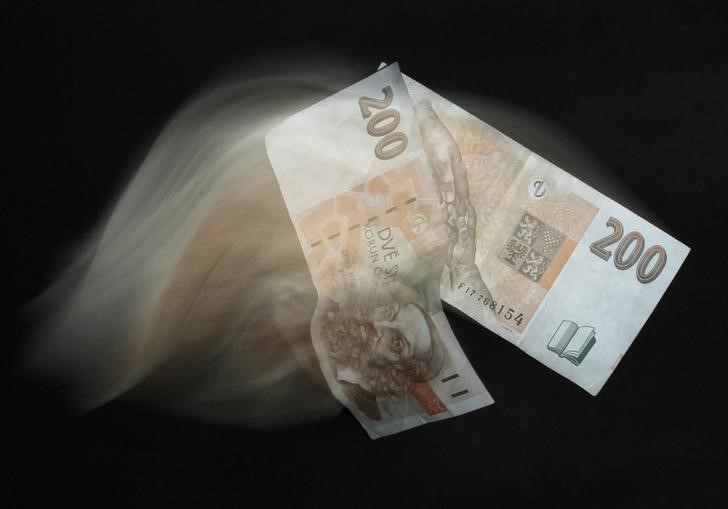By Sandor Peto
BUDAPEST (Reuters) - The Czech crown (EURCZK=) could firm up more than 4 percent against the euro in the next 12 months as the central bank is expected to remove its cap on the currency, a Reuters survey showed.
According to a Feb 27-March 1 poll of 47 participants, the crown could become Central Europe's best-performing currency.
As inflation is rising, the Czech central bank could become the first in the region to start to reverse years of loose policy by removing its cap at 27 crowns per euro which it imposed in late 2013 to fend off deflation.
It has pledged to keep that regime in place until the end of March and has said it could remove the cap in mid-2017 as inflation has risen to levels around its 2 percent target.
In the poll, only one out of 21 analysts projected a firmer crown rate than 27 for the end of March.
The bank, which has almost trebled its forex reserves since 2013 by defending the cap, would probably like to get rid of the cap soon, but breaching its commitment would hurt its credibility, analysts said.
For the end of May, 8 out of 21 analysts forecast a firmer than 27 exchange rate.
That may not be the full number of those who expect the cap to disappear by then as the crown, heavily bought in recent months, may not strengthen right after the cap is abandoned.
The most likely date for scrapping the cap is the bank's May 4 meeting when it will also discuss its latest inflation report, said Komercni banka chief economist Jan Vejmelek.
"The risk scenario is for an earlier exit, i.e. in April," he said, adding that a rise in core inflation made a later exit unlikely.
For the end of August, almost all poll participants projected a firmer rate than the cap, with a median 26.45 versus the euro.
The consensus projection for the end of February 2018 was 25.9, compared with 25.84 in a poll a month ago. That would represent a 4.3 percent firming compared with Wednesday's close.
Romania's leu (EURRON=) is expected to gain 1.1 percent and the zloty 0.4 percent on the same horizon, while the forint (EURHUF=) could ease 0.7 percent and the dinar (EURRSD=) 1.1 percent.
Analysts said a likely pick-up in economic growth could help currencies in the region but elections in key euro zone states including France and Germany this year could weigh, while investors watch out for reflation risks in the region.
"We expect that local central banks will start to tighten monetary policy either in 2017 (Czechs and Romania) or in 2018 (Poland and Hungary)," said Krystian Jaworski, analyst of Credit Agricole (PA:CAGR).
"This, combined with expected announcement of QE (asset buying) tapering by the ECB in Sept 2017 should contribute to a strengthening (of the region's currencies)," he added.
